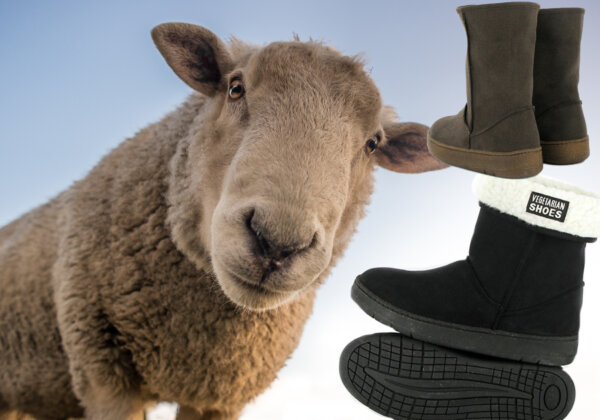UGG boots have long been a staple in casual footwear, known for their cozy interior and quintessential Australian roots. Yet, beneath the exterior of comfort lies a darker reality that challenges consumers to reconsider their choices. The wool industry, from which many UGG boots derive their materials, is fraught with controversy regarding animal welfare. This article delves into whether UGG boots are cruel to animals, exposing the often-hidden practices within the wool industry.
Wool is obtained primarily from sheep, specifically breeds such as Merino, which are favored for their fine fleece. The Merino sheep are particularly prized for their soft, durable wool, making them a cornerstone of the global wool market. However, the industry’s pursuit of profit often overshadows ethical considerations, leading to widespread animal suffering. One of the most heinous practices associated with wool production is mulesing, a procedure where strips of skin are removed from the sheep’s hindquarters to prevent flystrike. This method, performed without pain relief, leaves the sheep vulnerable to infection and distress.
Beyond mulesing, the living conditions of sheep on industrial farms are often dire. Many sheep are confined in overcrowded spaces, deprived of the natural grazing environment essential for their well-being. Their social structures are disrupted, causing significant psychological stress. Shearing, a necessary process to harvest wool, can also be traumatic. Although it may be executed by trained professionals, many sheep endure rough handling that can injure them or leave them in a heightened state of anxiety.
The European Union has recognized these welfare concerns and has begun to implement stricter regulations on wool production. Yet, many countries have yet to follow suit, allowing the continuation of these distressing practices. In Australia, where a significant amount of the world’s wool is produced, activists have stepped up efforts to raise awareness. Campaigns aiming to expose these cruelties have highlighted that consumers have the power to impact change through their purchasing decisions.
So, why do consumers continue to buy UGG boots when aware of the associated cruelty? Often, the allure lies in marketing that touts the quality and comfort of wool, overshadowing the ethical implications. Furthermore, the trend of fast fashion has proliferated a cycle where consumers prioritize low prices over animal welfare. The accessibility of UGG boots, often at a fraction of the cost of alternatives, continues to pull consumers into this paradigm.
However, as more consumers educate themselves on the wool industry’s realities, an alternative market begins to take shape. Sustainable fashion is gaining traction, with brands emerging that prioritize humane practices. These companies utilize synthetic or reclaimed materials that provide similar warmth and comfort without the need for animal exploitation. Innovations in material science have led to the development of high-quality alternatives, such as vegan leather and faux fur, which often outperform traditional materials in durability and ease of care.
For those wishing to make ethical choices, extensive research is essential. Numerous organizations compile information about brands’ animal welfare policies and practices. Seeking out certifications such as the Responsible Wool Standard can help consumers identify companies that adhere to higher ethical standards. The burgeoning movement towards transparency within the fashion industry empowers conscientious consumers to make informed decisions.
Furthermore, awareness of the implications surrounding the wool industry can encourage collective action. Public outcry against animal cruelty can lead to legislative changes and larger-scale reforms. Campaigns led by animal rights organizations, including petitions and awareness drives, amplify the voices of those advocating for change in wool production practices. When consumers rally behind ethical fashion, they not only support humane treatment of animals but also promote sustainability and responsible resource utilization.
In the realm of sustainable consumerism, it is also essential to examine the secondhand market. Thrift shopping and buying pre-owned items not only reduce waste but also allow individuals to enjoy the aesthetic of UGG boots or wool clothing without contributing to the demand for new, ethically dubious products. The resurgence of interest in vintage and secondhand fashion encourages circularity within the industry, creating a less exploitative consumption pattern.
As the conversation surrounding animal rights and ethical fashion gains momentum, differing viewpoints often arise. While some maintain that wool can be sustainably sourced and that sheep benefit from shearing, the prevalence of cruel practices cannot be ignored. An increasing number of voices assert that the welfare of the animals should take precedence over utility, urging a shift away from animal-derived products entirely.
In conclusion, the question of whether UGG boots are cruel to animals is deeply intertwined with the practices of the wool industry. Consumers must grapple with their choices, understanding the ramifications of supporting an industry riddled with ethical breaches. With the rise of alternative materials and movements for sustainable fashion, there is a growing potential to foster change that prioritizes the welfare of sheep over the allure of soft wool. The responsibility lies with each consumer to advocate for compassion in their purchasing decisions, ultimately shaping a market that respects animal rights.
As this movement continues to evolve, one cannot help but hope for a future where animal cruelty is no longer a silent consequence of fashion, but a topic that is boldly confronted and eradicated from the industry altogether.








